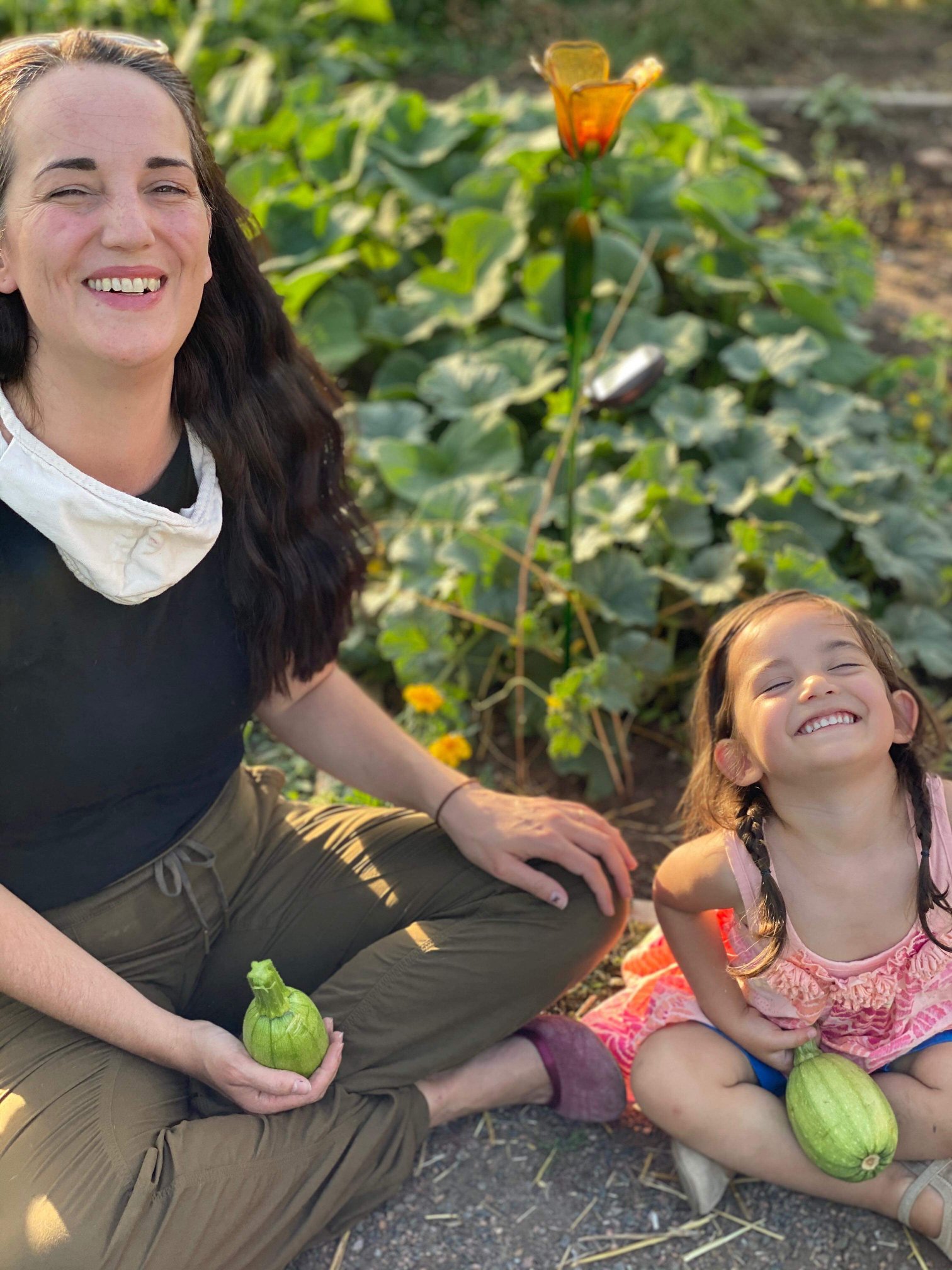#4: Meet Rosemari, Ruby Hill Community Garden
“It was quarantine and I wanted to take my daughter to experience the outdoors once a day. I went on Google Maps and tried to look for green spaces that were off the beaten path that wouldn’t be crowded during COVID. That’s how I found Ruby Hill. We fell in love with it immediately.
One of the best things about gardening is the community connection. Without COVID, we wouldn’t have had this opportunity. We haven’t had childcare and my husband and I work lots of hours. Two of my good friends are master gardeners. Asking my circle of friends about gardening has been a good way for me to connect with people about something other than the pandemic, being overwhelmed with work, or childcare.
Gardening has carved out a space for us to engage in something other than the usual stresses of everyday life. I could probably give you the names of 10-15 names of people in our garden, even while social distancing at the garden all season. Everyone is so incredibly welcoming. I have found that you can’t categorize the population in a community garden. Our garden is made up of all different types of people from all different walks of life. I expected to see more stereotypes, but I haven’t experienced that at all. The only stereotype that rang true in my community garden is that people are extremely nice, friendly, and excited to see you. You can tell when people really know what they’re doing, and those people tend to be very gracious and fantastic. One woman we met gave my daughter a flower pot she had grown by seed in her home to be replanted and she said: “Go and plant this in your garden! We are going to be friends by the end of the season anyway, so we might as well just start now!”
To have that during a time when we all are very isolated, to have that automatic welcomeness was so touching and powerful, perhaps now more than ever. I haven’t met any new friends during COVID other than in the garden. There is no way we could have predicted the pandemic, the economic crisis, the civil rights uprising, any of it. We would love to be at Ruby Hill again next year. We like the vibe there so much that we don’t mind driving out of our way to get there. We are establishing friendships there. We would love to share our plot with someone next season.”

